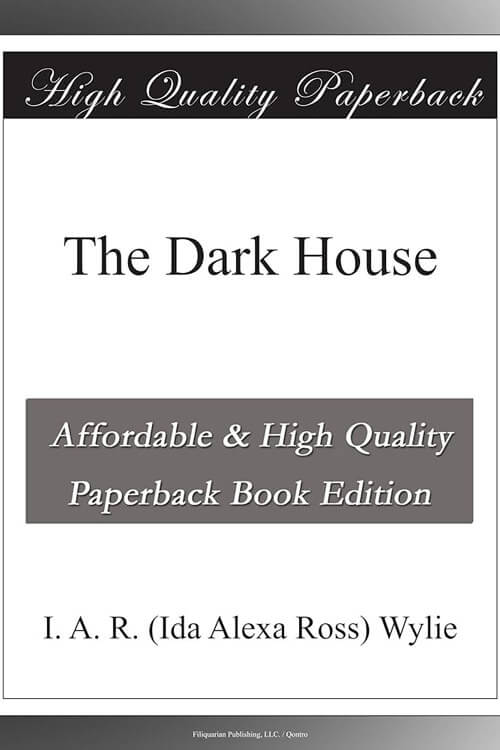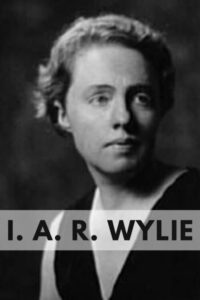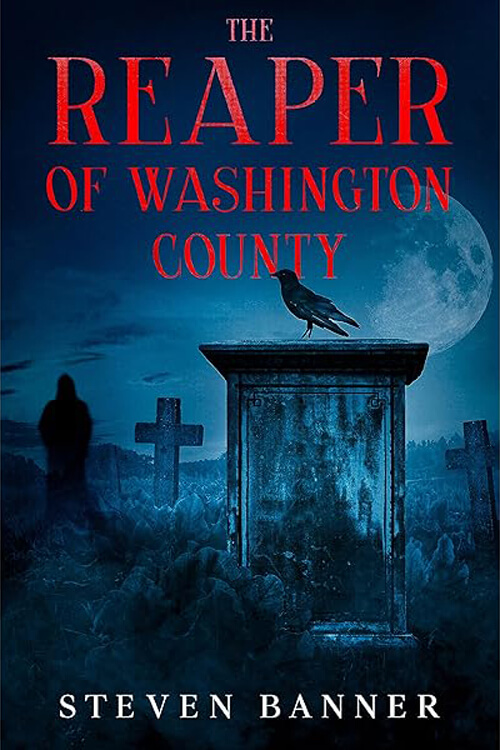
The Dark House
The cigar was a large one, and Robert Stonehouse was small. At the precise moment when he leaned out of the upstairs bedroom window, instinctively seeking fresh air, he became eight years old. He did not know this, though he did know that it was his birthday and that a birthday was a great and presumably auspicious occasion. His conception of what a birthday ought to be was based primarily on one particular event when he had danced on his mother’s bed, shouting, “I’m five—I’m five!” in unreasonable triumph. His mother had greeted him gravely, one might say respectfully, and his father, who did it in style when he did anything at all, had given him a toy fort fully garrisoned with resplendent Highland soldiers. And there had been a party of children whom, as a single child, he disliked and despised and whom he had ordered about unreproved. From start to finish, the day was his very own.
Soon afterwards, his mother disappeared. They said she was dead. He knew that people died, but death conveyed nothing to him, and when his father and Christine went down to Kensal Green to choose the grave, he picked flowers from the other graves and sent them to his mother with Robert’s love. Christine had turned away her face, crying, and James Stonehouse, whose sense of drama never entirely failed him, had smiled tragically, but Robert never even missed her. His only manifestation of feeling was a savage hatred of Christine, who tried to take her place. Indeed, his mother went entirely out of his consciousness for a time. But after a while, she returned to him on a secret path. In the interval, she had ceased to be connected with his evening prayer, morning bath, and all the other tiresome realities and become a creature of dreams. She grew tall and beautiful. He liked to be alone—best of all at night when Christine had put the light out—so that he could make up stories about her and himself and their new mystical intimacy. He knew that she was dead, but he did not believe it. It was just one of those mysterious tricks that grown-up people played on children to pretend that death was so enormously conclusive. Though he had buried the black kitten with his own hands in the back garden and had felt the stiffness of its pitiful body and the dank chill of its once glossy fur, he was calmly sure that somewhere or other, out of sight, it still pursued its tail with all the solemnity of kittenhood.
One of these nights, the door would open, and his mother would be there. In this dream of her, she appeared to him much as she had done once in Kensington High Street when he had wilfully strayed from her side and lost himself and, being overwhelmed with the sense of his smallness and forlornness, had burst into a howl of grief.
Read or download Book
I. A. R. Wylie
Ida Alexa Ross Wylie (16 March 1885 – 4 November 1959), known by her pen name I.A.R. Wylie, was an Australian-British-American novelist, screenwriter, short story writer, poet, and suffragette sympathizer who was honoured by the journalistic and literary establishments of her time, and received international recognition for her works. Between 1915 and 1953, more than thirty of her novels and stories were adapted into films, including Keeper of the Flame (1942), directed by George Cukor and starred Spencer Tracy and Katharine Hepburn.
Biography
Early life
Wylie was born Ida Alexa Ross Wylie on 16 March 1885 in Melbourne, Australia, to Alexander Coghill Wylie (1852–1910) from England and Ida Millicent Ross (1855–1890), a farmer’s daughter from Australia. I.A.R. Wylie’s father, Alec Wylie of Glasgow, Scotland, was in debt much of his life and often on the move from creditors. And so it was that sometime in the 1880s, after failing to be elected as an MP, he fled the UK for Australia, but not before his first wife divorced him in 1883 for adultery and violence, winning custody of their two children and also proposing to her sister, Christine (who refused). In Australia, he soon married a farmer’s daughter named Ida Ross. The couple’s first child, I.A.R. Wylie, was born in Melbourne, Australia, in 1885, literally named after her parents: Ida Ross and Alec Wylie. In 1888, Alec moved back to London with his new wife and young child, but Ida Ross died shortly after that. According to Ida’s book Life with George, an “unconventional autobiography”, – Alec then renewed relations with Christine, his first wife’s sister. Christine became the young Wylie’s home school teacher and guardian, raising her. At the same time, her father struggled from one crisis to the next. At one point, young Ida briefly attended Cheltenham Ladies College. Regarding influence on her development, “Christine was just the first of a line of women who proved far stronger and more reliable than any man in Ida’s life.” However, marriage records show Wylie’s third marriage was to Adela Maude B de Burgh Lawson, daughter of Sir Henry de Burgh Lawson of Gatherley Castle; it may be Adela who is Christine (Wylie’s first marriage was to Emillie Isabel Roumieu).






